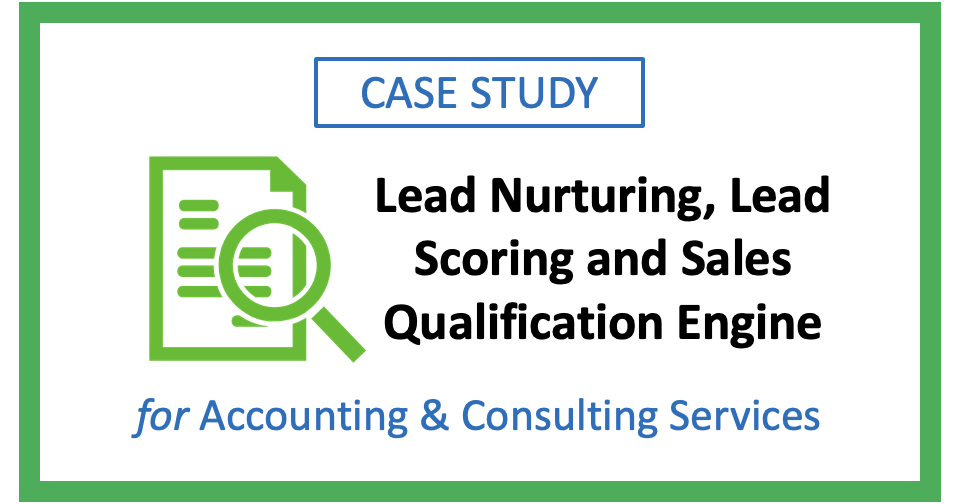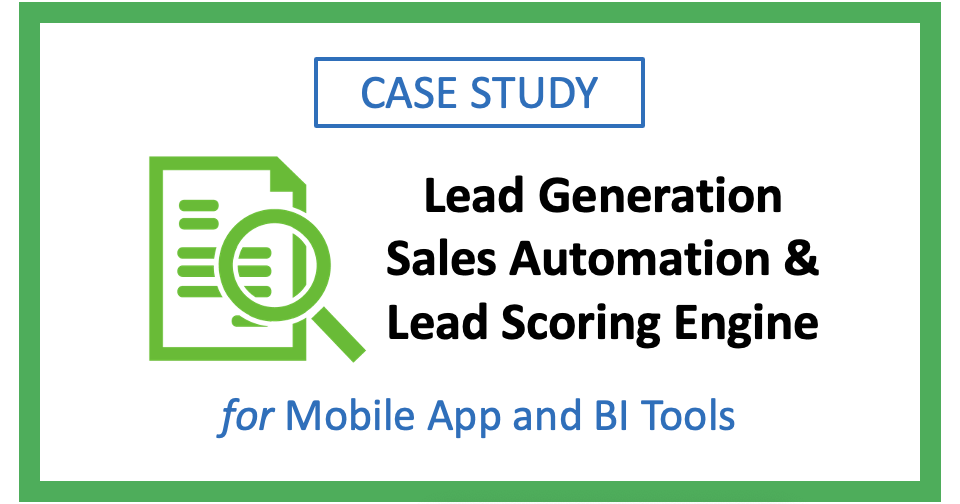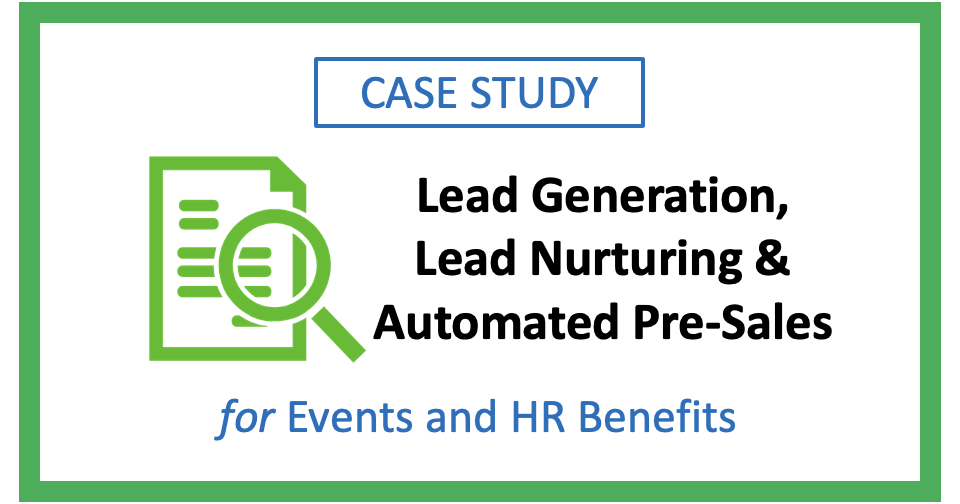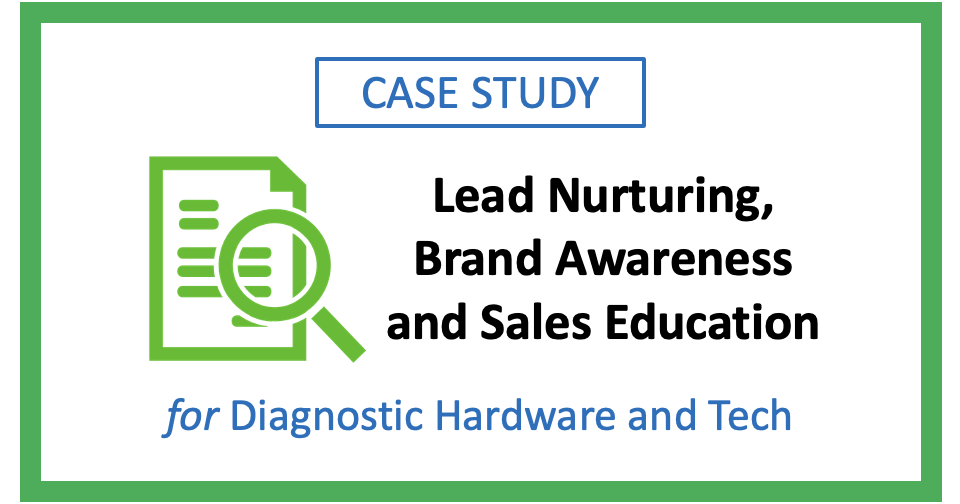
Accounting Services Lead Nurturing Case Study
DDC’s Lead Nurturing to Ideal Targets Helps Professional Services Company Double Growth Two Years in a Row
Summary
Accounting Services Lead Nurturing Case Study – In this accounting services lead nurturing case steady we will explain how a well-established and successful accounting services company used targeting marketing and lead nurturing of 6000 targeted buyers to double sales three years in a row.
Company Background
PCO Bookkeepers is privately held, 20-year-old accounting services firm founded by Dan Gordon. PCO Bookkeepers’ team of expert bookkeepers and accountants cater to the pest management and lawn care industry. PCO Bookkeepers offers internal and external accounting, tax planning and bookkeeping services. The company sells these services as a monthly retainer. The goal of their services to help businesses grow and to help business owners accumulate and preserve wealth.
Launched as a complimentary business in 2012 ,PCO M&A Specialists provides merger & acquisition experts that work day-in and day-out with Pest Control Business owners selling their company.
Situation
PCO Bookkeepers was already a well-established and successful company servicing over 200 clients nationwide. Founder Dan Gordon is an established thought leader – presenting at dozens of conferences a year, writing a monthly column for a trade magazine and participating in sporadic podcasts. PCO had also experimented with digital marketing for over three years by staffing a part time writer producing two articles a month with the goal of winning at SEO. PCO also staffed a half time Marketing Director managing the website, PPC campaigns, Social Media campaigns and executing sporadic email campaigns through MailChimp to generate leads. The company staffed a full time Sales Development Rep (SDR) responsible for following up with these leads and cold calling. The goal of the SDR was to set sales calls for Dan and other managers on his staff to generate proposals and close ongoing monthly services ranging between $12,000 to $40,000 in annual recurring revenue.
Already accomplished:
- Existing and stable client base
- Marketing experience
- Understanding of buyer’s journey
The Challenge
After three years of flat year over year sales growth, Dan Gordon was frustrated. He was investing in content and felt he was doing all the right things but not seeing results. The company was also struggling to get the marketing tech right. PCO Bookkeepers wanted to grow its core accounting and bookkeeping services. Dan also wanted to put more energy behind a stagnant M&A services business which generates substantially more revenue per deal. PCO was using an entry level CRM, an entry level email platform, was active on social media and had a starter database of about 10,000 targeted leads.
The Solution
Month 1
During the first month of the initial launch, Digital Demand Center’s parent company Gabriel Sales conducted an audit of PCO Bookkeepers existing online content and Dan Gordon’s tradeshow presentations, and quicky crafted a go-to-market strategy leveraging and maximizing existing content that included a:
- New initial awareness campaign
- Lead nurturing campaign
- Sales automation and conversion campaign
- Campaign introducing M&A services campaign
The go-to-market campaign strategy also included the introduction of video into the content marketing mix and the recommendation for a more consistent podcast.
Digital Demand Center’s full tech stack was implemented, and Gabriel Sales migrated the existing CRM into Salesforce including the integration of the marketing automation software.
Gabriel Sales also cleaned, augmented and honed the database to a total of 6,000 targets that were the ideal fit for the company.
Month 2 and 3
In month 2 and 3 DDCs turnkey ongoing managed services team kicked off a six-part awareness campaign and then added the ongoing lead nurturing and sales conversion campaigns. Gabriel Sales ran a content production workshop to create 12 videos to support the campaigns.
Month 4 and Ongoing
In month 4 Digital Demand Center moved into steady state. And during the first year Digital Demand Center drove significant engagement with PCO Bookkeeper’s very focused ideal target market.
Results

Sales Funnel Growth
Digital Demand Center™ and PCO’s commitment to digital first buyer education produced a late stage funnel of well-educated sales ready buyers that predictably scaled over time.
- Within six-month DDC was producing 120 marketing qualified lead a month with 6 -8 Sales Ready Leads/Month and an additional 2 to 4 well educated inbound leads a month
- By the end of year one DDC was producing 240 marketing qualified leads a month, 12-14 Sales Ready Leads/Month and 3 to 4 well educated inbound leads a month
- Within 18 months DDC was producing 300 marketing qualified leads a month, 14-18 Sales Ready Leads and 5-8 well educated inbound leads a month.
Lower Cost of Sales
As a result over the first year PCO Bookkeepers was able to significantly lower its monthly fixed cost of sales.
- Within 6 months PCO was able to: move to a part time Sales Development Rep making 50-100 follow up attempts to scored leads a month. In addition, the company was able to stop paid media campaigns and stop funding a part time marketing director.
- By the end of the first year PCO was able to get rid of the Sales Development Rep completely and hire a full time with industry expertise with their own rolodex and excited by a full sales funnel.
In addition, with and engine in place supporting the core business Dan was able to commit to the podcast and focus more energy on the M&A Services business.
Sales Growth
- Year One – PCO Bookkeepers increased its previous year’s sales by 100%
- Year Two – PCO Bookkeepers increased its previous year’s sales growth by 100%
- Year Three – PCO sustained the same year over year growth experienced in year two
- Over the course of those three years PCO Bookkeepers double their overall market share from 5% of the total addressable market to 10% of the addressable market for the accounting and bookkeeping services
- Simultaneously also doubled the volume and tripled the revenue of the M&A Services business

About PCO Bookkeepers and M&A Specialists
PCO Bookkeepers is privately held, 20-year-old accounting services firm founded by Dan Gordon. PCO Bookkeepers’ team of expert bookkeepers and accountants cater to the pest management and lawn care industry. PCO Bookkeepers offers internal and external accounting, tax planning and bookkeeping services. The company sells these services as a monthly retainer. The goal of their services to help businesses grow and to help business owners accumulate and preserve wealth.
Launched as a complimentary business in 2012 ,PCO M&A Specialists provides merger & acquisition experts that work day-in and day-out with Pest Control Business owners selling their company.







